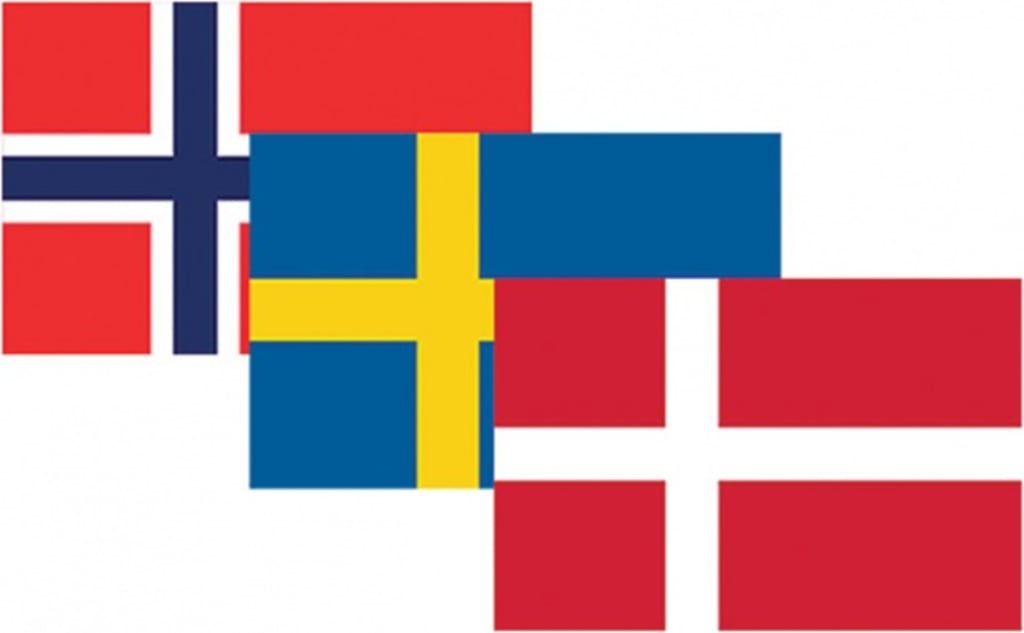Jante Law
The Piece of Society We Recognize but Can't Name

Wandering through a Scandinavian city, some pieces will immediately stand out for you. The old brick buildings in greys, whites, dull yellows, and if in Sweden, reds. The clothing of the people as they shuffle to and fro. Black, white, grey with little bits of colours splashed in from time to time. The buildings and clothings contrasting against the bright blue eyes and blonde hair of the majority of the population. They hold themselves in a manner of quiet confidence, friendliness when approached and eager to help when given the opportunity. Some of the happiest people in the world, they function as one and share a history that is as mixed as it is unique. From Denmark to Norway you will find a societal value that has been ingrained for centuries, dating back to when kommunes (communities) were dependent on the group and individuality was not the priority or heavily encouraged. Helping your family, friends, and following expectations was the way to insure success for yourself, family, and society.
Over the years, I have sat down and shared food, drink, and fun with many within Sweden and Denmark. One piece I always found difficult, the demeanor of people: friendly and kind but a sense of holding back and not oversharing with a stranger. Many answers given as a yes or no. Giving information as needed when pressed a little more but rarely over sharing. The distance between the conversationalists, more than an arm's length, appeared common and comfortable for Scandinavians and might feel odd for North Americans. Our use of chit chat and filling the silence in North America contrasts with the enjoyment of silence and going about your day. Once comfortable and "warmed up" to a new face, conversation and jokes will fly back and forth with ease. The process of allowing this warming up phase takes time, effort, and a display of reliability. Who wants to open up to a stranger anyway?
I found this out in an interesting way. My first time being introduced to my teammates, the distance between us seemed too big. I am a quiet speaker and prefer not to yell when talking. I proceeded to take a step forward, but as I did my Swedish friend took one step back. This dance played out until I clued in that I was invading their space. I opted to sit down in my stall with one space between us. They, in turn, followed suit. A cultural difference was lost on me at the time but after 3 years of living and playing in these nations, two words were able to define all of the cultural aspects that I had noticed. Jante's Law or in Danish, Janteloven. This idea has directed people to buy the clothes, vehicles, homes, and goods they do in specific styles that still resonate as you stroll the streets of Copenhagen, Stockholm, and Oslo.
Janteloven Eller (or) the Law of Jante
In Norway, it is called Jante and in Denmark referred to as Janteloven. In Sweden, lagom, having the perfect amount for yourself or balance, falls under a similar category with different roots.
The Law of Jante was created and articulated by Aksel Sandemose of Danish and Norwegian descent. He put the 10 rules of the law into place as a critique of Scandinavian attitudes, especially in smaller towns and communities where everyone would have known each other, much like smaller communities today. His book, written in the 1930s, A Fugitive Across His Tracks, depicts the small town of Jante and the people within this fictional village. Aksel highlighted a code of conduct within Scandinavian culture which allowed peers to make sure others would conform to the group. Stopping people from being out of the ordinary and overly ambitious, they deemed nonconformist individuals as inappropriate and untrustworthy. In some ways, that piece resonates with people now, but maybe not to the same extent. It is ingrained in the behavioral patterns passed down from generation to generation morphing and changing as society becomes more connected and global.
The Ten Tenets of Janteloven
- You're not to think you are anything special.
- You're not to think you are as good as we are.
- You're not to think you are smarter than we are.
- You're not to imagine yourself better than we are.
- You're not to think you know more than we do.
- You're not to think you are more important than we are.
- You're not to think you are good at anything.
- You're not to laugh at us.
- You're not to think anyone cares about you.
- You're not to think you can teach us anything.
These rules appear cynical in nature and harsh to some degree. As a critique, Aksel has taken attitudes and perspectives past the edge to emphasis a piece of culture a foreigner will notice but be unable to summarize. These laws bring about a social construct that benefits the collective and promotes the wellness of the community by reinforcing the idea of we as humans are not above others nor below, but that we are equal. WE above ME. US above YOU. By believing one to be above others gives permission for the group to place that person back into their place in society.
The eleventh Law of Jante is reserved as the penal code. When an individual decides to break the above rules, the last rule states:
11. Perhaps you don't think we know a few things about you?
This piece, I have heard before when elders tell stories of adults who were mischievous children or teens. The collective memory is long and unforgetting. Depending on what a person had done prior, it could be to their detriment. Most of the time it is used as a laugh to highlight the change someone has made on their way to adulthood and following the typical path of growth.
Get an education, find work, get an apartment, find a partner, have kids, pay taxes, and contribute to society. It sounds mundane but it is a path we all take in most developed societies. The expectation and the norm. In a sense, we all have our own societal influences that in one way or another dictate our course of action and what is deemed correct. The mannerism may change depending on the continent, but we are all fed a form of this the Law of Jante.
Perspective
Reflecting on my home, we too have expectations. Maybe not from the community but from our families and friends. To act, to follow, and to perform in certain manner. For some, going to school is the expectation; for others, it may be going to work for a family company in some form. By studying this fictional and, in a way, factual law, it has opened up that we as societies lead people down a path that we deem normal. Anything outside of that may be viewed with adoration, scorn, jealousy, or support, all depending on what the society truly values.
Janteloven can still be seen in the fashion, architecture, food, and interactions with people but it also sends the message that you are welcomed. You can join the group but try to fit in. My Swedish and Danish friends laugh when I mention these tenets. Examples are given and usually the conversation slows when they give examples of what they see at home. Whether it is negative or positive depends on your personal outlook but looking at these nations closely, they rank highest in the world for happiness. Something is working, even if Janteloven seems odd and hard to understand at first it has developed in some capacity much of what we see out of the Scandinavian nations.
In closing, the Law of Jante, although started as a critique of society—a Norwegian politician claimed these laws were taught within their school systems as a social code to demonstrate positive social behavior—level out society and set the rules for all. To sum up this idea, "You shouldn't think you're better than everyone else," but as some have claimed, the Law of Jante died in 2005 or... is it so entrenched in society that it can truly never go away?






Comments
There are no comments for this story
Be the first to respond and start the conversation.